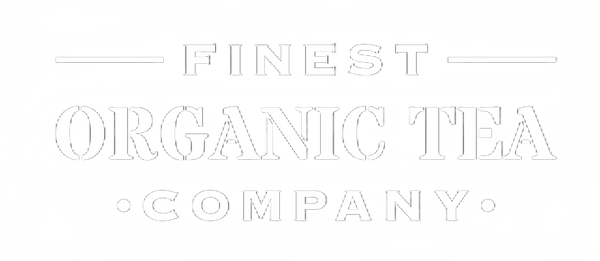Matcha Tea Caffeine vs Coffee: A Comprehensive Analysis
Understanding Caffeine Content in Matcha Tea and Coffee
Caffeine is a natural stimulant in several plants, including tea leaves and coffee beans. Its stimulating effects are widely recognized, but how does the caffeine content in matcha tea compare to that in coffee?
Caffeine in Matcha Tea
Matcha tea, a finely ground powder of specially grown and processed green tea leaves, is known for its vibrant green colour and rich, earthy flavour. Unlike traditional green tea, where leaves are steeped in water and then discarded, matcha involves consuming the entire leaf, providing a more concentrated source of nutrients—and caffeine.
green tea leaves, is known for its vibrant green colour and rich, earthy flavour. Unlike traditional green tea, where leaves are steeped in water and then discarded, matcha involves consuming the entire leaf, providing a more concentrated source of nutrients—and caffeine.- Average Caffeine Content: A standard serving of matcha (about one teaspoon or 2 grams of powder) contains approximately 25-35 milligrams of caffeine. However, this can vary depending on the quality of the matcha and the amount used.
- Slow Release of Caffeine: One of the critical benefits of matcha is its slow release of caffeine. Thanks to the presence of L-theanine, an amino acid that promotes relaxation without drowsiness, the caffeine in matcha is absorbed more slowly into the bloodstream. This leads to a more sustained energy boost, typically lasting 4-6 hours, without the jitters or sudden crashes often associated with coffee.
Caffeine in Coffee

- Average Caffeine Content: A standard 8-ounce cup of brewed coffee contains between 95-165 milligrams of caffeine, depending on the type of beans, brewing method, and serving size. Espresso, being more concentrated, can contain about 63 milligrams of caffeine per 1-ounce shot.
- Rapid Release of Caffeine: Unlike matcha, the caffeine in coffee is quickly absorbed into the bloodstream, typically reaching peak levels within 30 minutes to an hour. This rapid absorption can lead to an immediate energy boost but may cause jitters, anxiety, and a more pronounced energy crash later.
Health Benefits Beyond Caffeine
While caffeine content is a significant factor, matcha tea and coffee offer unique health benefits beyond their stimulating properties.Matcha Tea: A Nutrient Powerhouse
Matcha is not just about caffeine; it's packed with various antioxidants, vitamins, and minerals contributing to overall health.- Rich in Antioxidants: Matcha is exceptionally high in a group of antioxidants known as catechins, especially EGCG (epigallocatechin gallate), which has been linked to numerous health benefits, including reduced inflammation, enhanced heart health, and potential cancer-preventing properties.
- Promotes Calm Alertness: The combination of caffeine and L-theanine in matcha provides a sustained energy boost and supports calm alertness. This makes matcha an excellent choice for those seeking focus and concentration without the anxiety accompanying coffee consumption.
- Supports Metabolism and Weight Loss: Some studies suggest that the catechins in matcha, particularly EGCG, can enhance fat oxidation and improve metabolic rates, making it a popular choice for those looking to support weight management efforts.
Coffee: The Classic Energizer with Proven Benefits
Coffee is more than just a morning ritual; it has been extensively studied for its numerous health benefits.- Packed with Antioxidants: Coffee is a significant source of antioxidants, including chlorogenic acid, which has been linked to reduced inflammation and a lower risk of certain chronic diseases, such as type 2 diabetes and heart disease.
- Enhances Physical Performance: The high caffeine content in coffee stimulates the nervous system, which can improve physical performance by increasing adrenaline levels. Many athletes consume coffee before workouts to boost endurance and strength.
- Supports Brain Health: Long-term coffee consumption has been associated with a reduced risk of neurodegenerative diseases such as Alzheimer's and Parkinson's disease. The caffeine in coffee protects brain cells by blocking adenosine, a neurotransmitter that promotes drowsiness.
Which Is Better for You?
Choosing between matcha tea and coffee ultimately depends on your preferences, lifestyle, and health goals.When to Choose Matcha Tea?
- You Seek Sustained Energy: If you prefer a steady, long-lasting energy boost without the jitters or crash, matcha is an excellent choice.
- You Prioritize Calm Focus: The combination of caffeine and L-theanine in matcha can help you stay calm and focused, making it ideal for tasks that require concentration.
- You Want a Nutrient-Rich Beverage: Matcha's high antioxidant content and potential metabolism-boosting properties make it an excellent option for those looking to support overall health.
When to Choose Coffee?
You Need a Quick Energy Boost: If you're looking for a fast and powerful energy surge, coffee's higher caffeine content delivers a more immediate effect.- You Enjoy the Ritual: For many, brewing and drinking coffee is a daily ritual. If this resonates with you, coffee may be the preferred choice.
- You Benefit from Enhanced Physical Performance: Athletes and those engaging in high-intensity activities may find that coffee provides the extra push needed to excel in their workouts.
Final Thoughts
There is no definitive winner in the debate between matcha tea and coffee. Both beverages have strengths and cater to different needs. Whether you choose the sustained calm energy of matcha or the quick, powerful boost of coffee, understanding the nuances of each can help you make the best choice for your lifestyle.
More from:
Matcha Tea Caffeine vs Coffee





Leave a comment